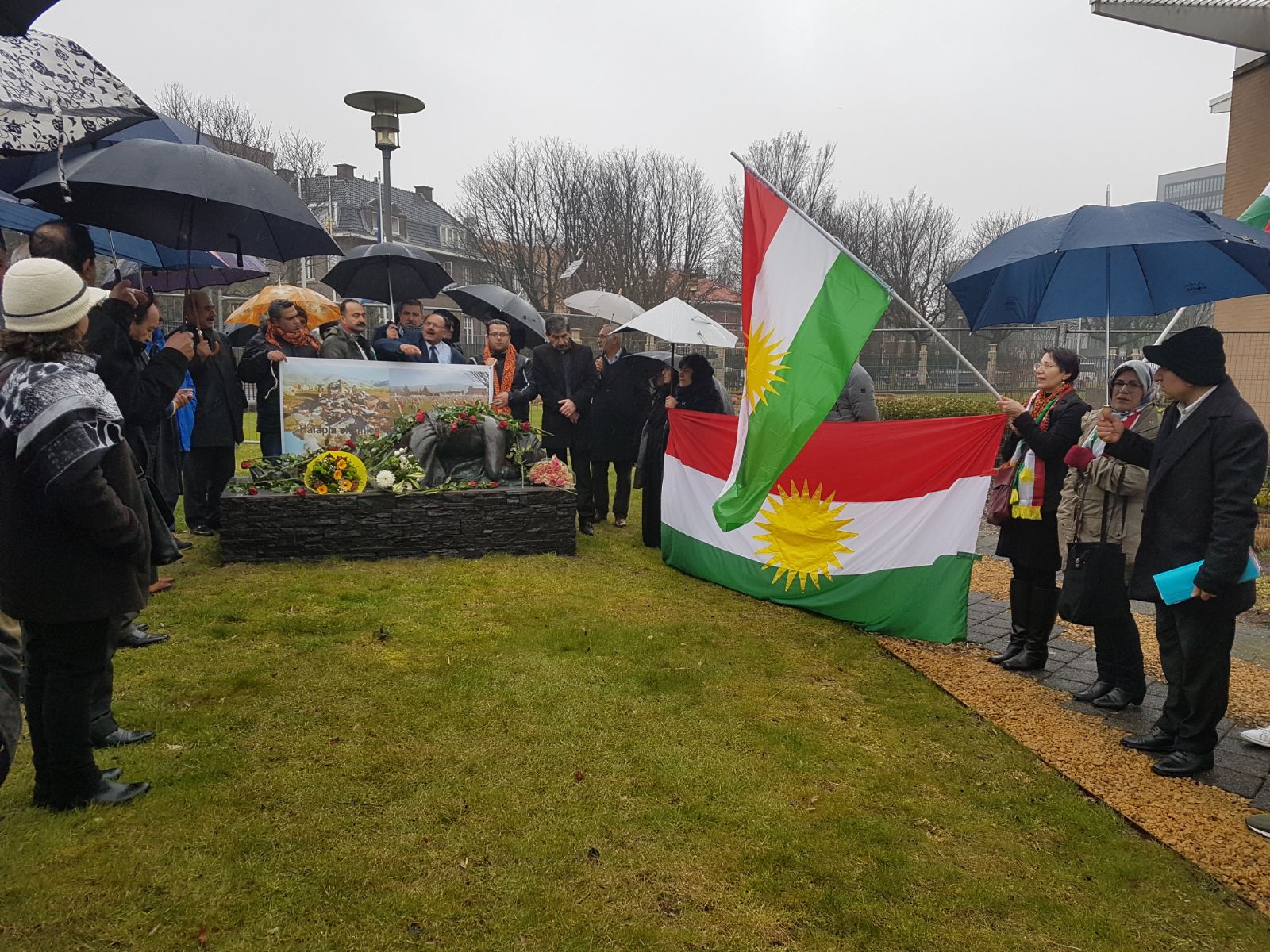Thirty years ago, Iraqi aircrafts dropped chemical bombs on Halabja, penetrating sweet-apple & clove gasses into the bodies of over 5,000 civilians and causing thousands more to suffer from detrimental implications for generations to come. Now history seems to repeat itself in Afrin and worrisome parallels may be drawn between the patterns of atrocity crimes that have been committed in the region by both state- and non-state actors in the past century. Dersim, Qaladiza, Kobane, Sinjar, beyond the decades of forced displacement, 4,500 levelled villages, mass-summary executions, jailing and torture of arbitrary citizens, the execution of 8,000 Barzani men and boys, thousands of Faylee Kurds and the meticulous destruction of Kurdish heritage and identity in all its facets.
Considering that the chemical attack on Halabja was part of the larger genocidal Anfal operations committed by the Ba’athist regime of Saddam Hussein, a fundamental question to ask ourselves is until what point we will allow regimes and terrorist entities to utilize religious or ideological justifications to commit atrocity crimes against other peoples and faiths? While Anfal means ‘spoils of war’ in Arabic, and the Yezidi genocide on the hands of ISIL in Sinjar was conducted against the ‘devil worshippers’, today, Erdogan’s Turkey advocates for the ‘jihad’ against the Kurds in Afrin, and, the Syrian Ba’athist regime neatly repeats the aforementioned by terrorizing its people with chemicals and barrel bombs – long after they have persecuted the Kurds for decades.
‘Genocide is not just a murderous madness; it is, more deeply, a politics that promises a utopia beyond politics – one people, one land, one truth, the end of difference. Since genocide is a form of political utopia, it remains an enduring temptation in any multi-ethnic and multicultural society in crisis.’ – Michael Ignatieff
Therefore, it is now more important than ever that holistic protection and empowerment mechanisms will be constructed for the fruitful mosaic of peoples to survive in the region, in face of looming extremist ideologies and human rights infringements.
International institutions like the International Criminal Court (ICC) and the Organisation for the Prohibition of Chemical Weapons (OPCW) can play a crucial role in this process and empower the rule of law to take root in an environment of impunity. The international city of peace and justice – The Hague – is home to many such organisations, which must be engaged to take a pro-active role in preventing and prosecuting atrocity crimes.
It may indeed take decades to bring the perpetrators and accomplices of these crimes before the court, and chances are that many will evade prosecution. Nevertheless, besides a sense of justice for the victims and their families, the active deterrence of organisations such as the OPCW and international prosecutions can make a decisive contribution in countering the cycle of genocidal violence and consolidate the international criminal justice system.
Laudably, public prosecutor Simon Minks from the Hague Court of Appeal is one of those noble crimefighters that successfully prosecuted Dutch businessman Frans van Anraat for delivering the chemical substances used in the Halabja chemical attack. And just a few days ago, the American law firm MM-Law – headed by attorney Gavriel Mairone – filed a multi-billion lawsuit against German companies for their complicity in the production and the utilization of chemical weapons by the Iraqi regime.
As rain drops fall on the soft green grass and memories are exchanged, Kurdish communities stood united, on March 16, 2018, in the garden of the Organisation for Prohibition of Chemical Weapons in The Hague. Desperate cries from the people of Afrin resonate in our minds and in the chilly sea-wind around the statue of uncle Omar and his son – the scene that became to symbolize the injustices against the Kurds. It’s almost as if their bodies are not allowed to rest – caught in the volatile layer between heaven and hell. It is these very feelings of insecurity, the feelings of being chased, persecuted and robbed of your identity. These are the scars that have been inflicted upon families of minority peoples in the region, and yet the infinite faith in a flourishing and peaceful future prevails.
On this 30-year commemoration of Halabja – while the rain drops in consonance – I am reminded of the message my grandmother once shared on a summer evening under the grape trees in her garden – a place where she found solace. Beyond her experiences as a mother of 5 children during the Anfal and losing my grandfather early on, she never forgot to conclude her story with saying that we – as a people – have the obligation to set the right standard and build a better homeland for all birds and butterflies of Kurdistan.
When Saddam Hussein was hanged after his conviction for crimes against humanity, I remember my grandmother saying, ‘that is not justice’. Although she lost two sons because of him and was obliged to pay 100 Iraqi dinars for the bullets that pierced their hearts, she condemned the death punishment of Saddam, judging it an unmoral response. Her resoundingly humane and reconciliatory message, despite the bitterness she endured, embodies a source of strength and faith for many on the Halabja anniversary. The fire of humanity burns brightly and we must ensure it cuts through the darkness, so that the leaves of the walnut trees may bloom and migratory birds may fly freely in search of a long lost home.
“I swore never to be silent whenever and wherever human beings endure suffering and humiliation. We must always take sides. Neutrality helps the oppressor, never the victim. Silence encourages the tormentor, never the tormented.” – Elie Wiesel

